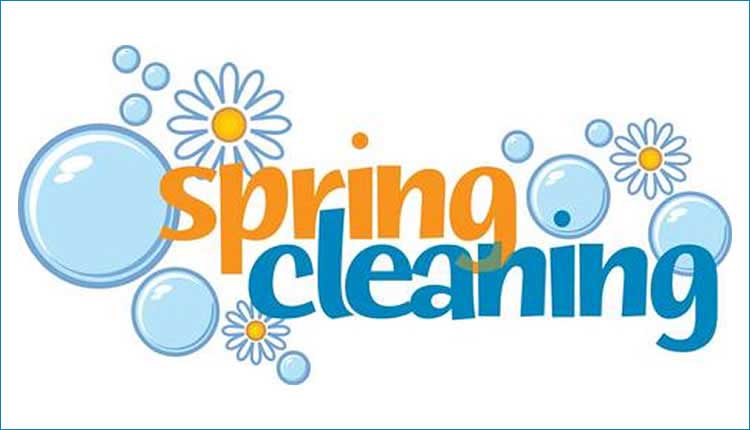Just when things are winding down, that’s the time to rev up next year’s band program
In his discussion of time-management skills, best-selling author Stephen Covey distinguishes between activities that are urgent and those that are important. By Covey’s definition, urgent activities are those that demand immediate attention but are of limited long-term benefit-the daily problems that crop up in our lives, mundane matters that need to be dealt with right away. By contrast, important activities do not need to be addressed immediately, but their completion is vital to our future success; they define our overall progress and lead us toward our goals.
For the band director, the academic year is crowded with tasks, events and obligations that impose deadlines and take up most of the available time. When daily operations are in full swing, a band director must turn his or her full attention to keeping things going smoothly. There is little time to step back and see the overall picture.
The end of the year, however, is another story. The time when scheduled activities are winding down is precisely the time to address the really important duties of the band director-wrapping up the current year and planning for the next. With this in mind, we spoke to Mike Lynch, director of bands at Pitman High School in New Jersey, who was featured as a “Teacher of Note” in the previous issue of Keynotes. He provided the tips that follow.
Uniform Maintenance
First impressions are important, and the public’s first impression of a band is based on appearance. Band uniforms are meant to attract attention, which means that they need to look perfect. The end of the year is the right time to inspect uniforms carefully for items that need to be repaired or replaced. Inventory should be taken to ensure that enough uniforms are available for the following season.
Uniforms should be cleaned twice yearly in order to sustain their longevity. Your program’s schedule of events will determine when the uniforms will be cleaned, but a good plan is to have them cleaned prior to and immediately following the marching band season. This brings you to the football field looking sharp and new each season and also allows you to be prepared for any spring and summer events that may be forthcoming.
Recruiting Students
Recruiting efforts must take place prior to the scheduling conferences at which guidance counselors assist students in choosing their courses for the following year. Be sure to know the date when middle schools schedule guidance sessions for eighth-graders. Coordinate this date with high school counselors and plan an event to bring present and prospective students together.
A good strategy is to have select high school students visit middle school programs with a prepared topic to speak on. Suggestions include “Balancing Extra-curricular Activities,” “Rewarding Experiences with Band,” “Recognition for Band Students,” “Band Trips” and so forth. The idea is to instill excitement about joining the band by hearing it from the students themselves. Displaying trophies and showing videos of recent performances will also help.
A more ambitious idea is to plan a combined performance with high school and middle school students. This allows students to feel successful in accomplishing something together, in addition to the opportunity for socializing. This win-win situation allows high school students to act as mentors to their younger cohorts while middle school students cherish the feeling of being accepted by older band members. Activities such as this can help retain current students while making the program more attractive to future students.
Retaining, rewarding and motivating Hosting an end-of-year picnic/awards ceremony can prove extremely valuable to the success of your program. This event should include the many groups and individuals who help sustain the program throughout the year, such as your principal, band parents, prominent community members and, of course, students and their families. Plan an opening speech that recaptures the highlights of the previous year and builds anticipation for the year to come. Rewarding your students during this event is key to retaining their interest. It is important to recognize all students and their achievements. Announcing next year’s drum major and band officers is another way to build anticipation toward the next season.
This is a perfect time for a PowerPoint presentation or slide show of the year’s major events. Inevitably, this will bring back fond memories, make your audience smile and ultimately remind everyone of the rich rewards that participation in the band program can provide. If you choose to go above and beyond, assign a small group of students to prepare a memory book to include student biographies, notable quotes of the year and plenty of candid pictures. Giving the memory book or a copy of the slide show as a senior gift will provide a very positive response and closure for your graduating class.
Communication
It is imperative to maintain regular, ongoing contact with parents. Preparing a calendar of tentative dates, rehearsals and events for the upcoming year will help reduce scheduling conflicts. Be sure to announce your band camp dates as soon as possible, as this will be much appreciated by parents planning family gatherings and vacations. Your proactive approach to scheduling will create a more successful environment for teachers, students and parents alike.
Developing Leaders
Auditioning and interviewing band leaders or officers prior to the close of the year will help students take the summer months to prepare for what lies ahead. A smooth transition from the current year to the next will occur if your present leaders have time to meet and communicate with the newly elected ones. Your current leaders know the idiosyncrasies of the program and your expectations better than anyone else.
Several summer leadership training programs for music students are also available. One example is LEAD (Leading through Education, Adventure and Discipline). Codirected by band directors Mike Lynch of Pitman High School and David T. May of Burlington City High School, LEAD holds three-day leadership training sessions in the southern New Jersey area. For more information, visit www.leadcamps.com.
Inventory This is a task that haunts every director. With all that happens during the end of the school year, keeping a detailed inventory list can be extremely difficult and time-consuming. Using the assistance of a few select music students and a computer filing program (such as the Charms Office Assistant, https://www.charmsoffice.com/) can be extremely helpful as you balance your time between graduation rehearsals and all other end-of-year events. If you do not have access to any such computer program, preformatted inventory sheets are available at www.conn-selmer.com/toolset. Your favorite dealer may also be able to assist. It is important to keep accurate records of each instrument’s manufacturer, model, age and serial number; know when it’s time to retire older instruments. Each should be looked over carefully to see if repair or replacement is required. Conn-Selmer’s Toolset website has depreciation schedules for all band and orchestra instruments to make it easier to explain to administrators why instruments need to be replaced. After inspection and inventory are complete, students should be encouraged to register and retain their instruments throughout the summer.
In addition to instrument inventory, all method books, folders and music should be collected and inspected for missing parts. Time spent filing music properly for future use is time well spent. There is nothing more frustrating than having to purchase missing materials because they were not collected and filed correctly.
Most important, the end of the school year is a time to plan, project, and set goals. What is your overall assessment of the current year? Were short-term goals met? What are the projections for next year? Is there a clear path to long-term goals? Now is the time to establish exactly where you want to go with your program and how you are going to get there. With urgent matters coming to a close, now is the time to focus on what is really important.
A few other end-of-year pointers for band directors:
- Get creative with your fundraising plans
- Stay on top of your budget requests
- Assess needed rehearsal room repairs/upgrades
- Devise an advocacy program calendar
- Tend to any cross-curricular planning issues
- Set up a private lesson plan for the fall
- Create a newsletter schedule with dates and topics
- Create a summer newsletter for returning students
- And that most fearsome task of all…
- Put your office in working order
Dr. Robert Rawlins is chairman of the music department at Rowan University in Glassboro, New Jersey. His publishing credits include Jazzology: The Encyclopedia of Jazz Theory for All Musicians, a new release from Hal Leonard that he coauthored. He can be reached at rawlinsr@rowan.edu.


